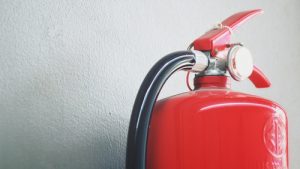 Senior citizens living in nursing homes or assisted care facilities have special health concerns and needs. While personal injury will be an ongoing concern due to the potential for falls, there are also other issues to monitor to ensure the health of an elderly patient in a nursing home. Professionals on staff in care facilities have special training to equip them to prevent and respond to the special health emergencies that can occur in elderly patients. Knowing how to promote safety is a crucial element of patient care.
Senior citizens living in nursing homes or assisted care facilities have special health concerns and needs. While personal injury will be an ongoing concern due to the potential for falls, there are also other issues to monitor to ensure the health of an elderly patient in a nursing home. Professionals on staff in care facilities have special training to equip them to prevent and respond to the special health emergencies that can occur in elderly patients. Knowing how to promote safety is a crucial element of patient care.
The Americans With Disabilities Act
The Americans With Disabilities Act was passed into law in 1990. This law prohibits discrimination against people who have disabilities in all types of public and private locations that are open for public use. Nursing homes must be compliant with the ADA, as most other health care providers and settings. A nursing home must provide health services in an equal and fully accessible manner to all individuals, including any with disabilities. Achieving this level of care involves the elimination of physical barriers and providing any auxiliary services and aids needed by patients.
Safety Precautions
Nursing home safety is also crucial for avoiding personal injury. Standard safety precautions begin with thorough background checks of all staff members to ensure that employees do not have a history of abuse. Security systems and cameras installed throughout the facility will help staff members monitor the locations of residents. Nursing homes must also have protocols in place to keep residents physically safe. Facilities may use some type of restraint system to keep patients from moving around unassisted. Nursing homes must comply with physical restraint laws that govern the times and types of restraints used. Federal laws require that physical restraints can only be used to ensure the physical safety of a patient, other patients, and staff. It is unlawful to use restraints to punish residents or to increase convenience for employees.
Physical and Mental Health
Maintaining physical and mental health is an important part of aging. While genetics plays a role in how people age, lifestyle is also a factor. People who remain physically active through regular exercise will often reduce their likelihood of developing health issues such as heart disease. Avoiding smoking and maintaining a healthy weight are also important ways to maintain physical health. Good mental health involves having a positive outlook. Older adults often have a variety of reasons for why their outlook may not be as positive as that of younger people. Chronic pain, disease, losing independence, and bereavement can contribute to psychological distress and depression. Providing safe and supportive living conditions with opportunities for social interaction and freedom is an important part of successful elder care.
Seasonal Safety Measures
Both summer and winter weather can provide some safety challenges, especially for older adults. During the coldest temperatures, elderly adults should stay inside as much as possible. Wind chills can create dangerous outdoor conditions, especially for frail older adults. Icy surfaces may also contribute to serious falls and subsequent injuries. Indoors, elderly people should maintain a healthy diet and drink warm beverages to maintain warmth and hydration. During the summer months, heat and humidity can be dangerous. Drinking water is important for ongoing hydration. People should also dress in light cotton fabrics, wear a brimmed hat, and avoid the sun in the hottest part of the day. Residing in an air-conditioned space or in a room with a fan to move the air is also helpful.
 This article written by Jonathan Rosenfled is used with the permission of Rosenfeld Injury Lawyers.
This article written by Jonathan Rosenfled is used with the permission of Rosenfeld Injury Lawyers.

